Welcome back to the Stairway to Wisdom!
I just got back from Toronto after having surgery to repair a hernia (it went great!), and I prepared a special, personalized video message for you guys upon my return.
It's only about 2 minutes long, but I need your help!
You'll see why in the video:
This week's book breakdown is ready for you to dive in, and it features Your Next Five Moves, by Patrick Bet-David, one of the best business/leadership books I've ever read.
In this issue of the newsletter, we've also got a profile on Lewis Carroll, three books that will help you attain mastery, wisdom from an extremely down-to-earth book that could really help you out tremendously, and more!
So let's get started!
Latest Release: Your Next Five Moves
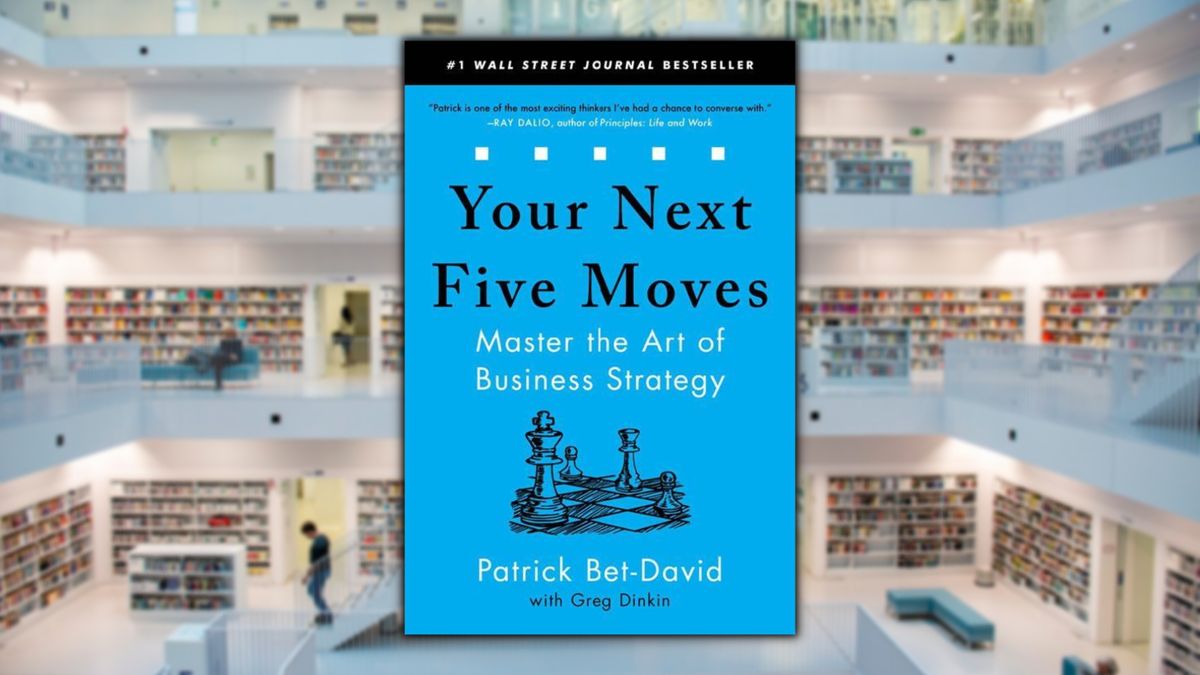
“Your vision must align with who you want to be. Your choices must align with your vision. Your effort must align with the size of your vision. Your behavior must align with your values and principles.”
-Patrick Bet-David
Your Next Five Moves completely overwhelmed my expectations going into it and provided me with a wealth of business and leadership knowledge in just a few hours that I'll be able to use and profit from for the rest of my natural life.
Such is the power of reading!
Your Next Fives Moves is a high-level, high-impact playbook for how you can maximize your effectiveness in five areas: gaining self-knowledge, mastering the ability to reason, developing and building the right team, learning strategy to scale, and deploying power plays that will help you negotiate more effectively and take down some of the biggest competitors in your industry. This book will show you how to do it all.
The overarching theme of this book is the absolute necessity of thinking several moves ahead if you want to succeed in business, especially if you want to make a bigger impact than just earning a comfortable living. There’s nothing wrong with having a goal like that – something I love Patrick for emphasizing – but if you do decide to set bigger goals for yourself, you need to develop a work ethic to match.
Your discipline has to be as unshakable as your dreams are large, or you’re just not going to get there.
Moreover, we all need to understand that the most important person you’ll ever study will be yourself. Yet, most people are so concerned with other people and what they’re doing that they never take the time and make the effort to gain invaluable self-knowledge. In this book, Patrick Bet-David clearly and lucidly lays out why this is a tragic misstep that you need to avoid at all costs.
He also argues - again, rightly - that what separates average business owners from exceptional leaders and entrepreneurial visionaries is the ability to anticipate future events and plan effectively well before they actually happen. By thinking, planning, and strategizing at least five moves ahead.
Your competition isn't doing this.
Your meager competition isn't doing this, I should say. The competitors you should be worried about absolutely are thinking several moves ahead, and if you want to play at the same level as them you need to elevate the quality and substance of everything that you're doing in your business.
You need to combine devastating offense with awesome defense and then you have to move forward with sickening consistency and unrelenting passion.
This is how you separate yourself. This is how you enter the highest echelons of business and show the world that you deserve to be there.
When the rest of the people you're competing against are mired in today's problems and dealing with the challenges threatening their existence right now, you'll be living, thinking, planning, and acting in a larger, brighter, more distant future that they will just never be able to get to.
This book will help you outwork, out-improve, out-strategize, and outlast your competition, and it’s written by someone who’s actually done the work himself; he’s done exactly what he’s telling his readers to do, and that kind of accountability and authenticity is something you hold onto for dear life once you’ve found it in a person.
None of this is going to happen by accident, just like Patrick Bet-David didn't just "stumble" into his massive success. It was intentional, it was planned, and by utilizing the strategies he lays out in this book, it became damn near inevitable.
--> Read the rest at the Stairway to Wisdom!
Inside the Mind: Lewis Carroll

Inside the Mind is where we take you deeper into the life and thought of a major literary figure, someone who has had an extraordinary impact on our collective knowledge and wisdom.
Today I'm featuring Charles Lutwidge Dodgson, an English author, poet, and mathematician (how rarely those go together!), better known by his pen name, Lewis Carroll.
You may remember him from such children's stories as Alice's Adventures in Wonderland, and Through the Looking-Glass!
I just finished reading those stories this year (24 years too late to read them as an 8-year-old), and loved them. There's so much more going on in those stories than it first appears. Since Lewis Carroll wrote 11 books on mathematics during his lifetime, this isn't such a surprise.
Alice kind of reminds me of The Simpsons in that way, since they both can be enjoyed from so many different angles.
On a close reading, you'll see that “A boat beneath a sunny sky,” the poem at the end of Through the Looking-Glass, is an acrostic that spells out Alice Pleasance Liddell, Carroll's inspiration for the stories themselves.
Did I mention that he also invented a way to write in the dark? Yea, so that's kinda wild too. I also still haven't been able to find a photo of Carroll looking at the camera, even though he was an accomplished photographer himself.
A Few Quotes from Lewis Carroll:
“It’s no use going back to yesterday, because I was a different person then.”
“Why, sometimes I've believed as many as six impossible things before breakfast.”
“One of the deep secrets of life is that all that is really worth the doing is what we do for others.”
Start with This Book: Alice's Adventures in Wonderland, by Lewis Carroll
Another Good Place to Start: The Hunting of the Snark, by Lewis Carroll
Wisdom in Action: Real Help
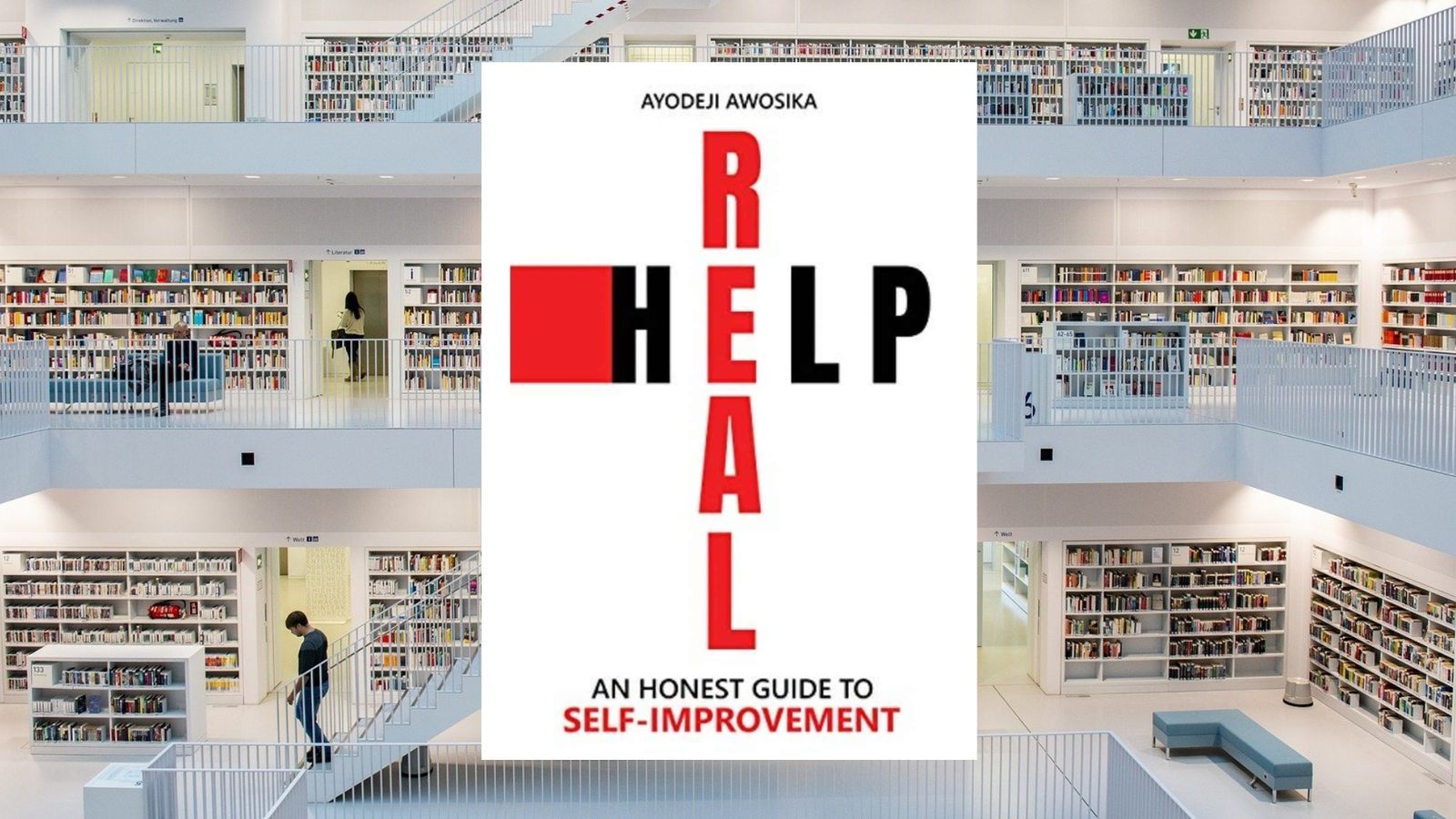
You'll notice that every book summary in The Stairway to Wisdom comes with Action Steps. That's because when you really want to bring about changes in your life, knowledge is not enough.
After learning and knowing, you must do.
We want every one of our readers to see and feel their lives changing for the better, immediately and over time.
So in this section, we've taken the first three Action Steps from Real Help, by Ayodeji Awosika, a no-nonsense, straight-talking book about how to rise above society's expectations, and put them right in front of you so that you can take action today:
#1: Choose Someone to Be Strong For
In the Key Ideas section of this breakdown, we covered the fact that self-help is not self-ish. We need to be strong for others, because many people alive today desperately need our help - they need us to be strong for them. So the first Action Step here is to choose someone you are going to show up for, someone who needs you to be strong.
It doesn't have to be someone you know personally, but think of how many people there are in the world that could really use your help! If you still resist the idea of getting rich for yourself (in every sense of that term), then at least do it for them.
Think about this person - or this group of people - who needs your help and keep recalling them to your mind every single day. Multiple times per day! Before every one of your challenging tasks, before starting work on every difficult project, every time you're tempted to give up.
Think about who you've committed to being strong for, and allow the love you feel for that person or those people to sustain you, to keep you going.
Just like in Plato's Symposium, where he says that an army of lovers could never be defeated, when you're doing what you do for someone else, you can survive and persist through much more than you ever could if you were simply trying to succeed by yourself and for yourself.
#2: Curate Your Own Reality
The people and ideas you surround yourself with influence your worldview, for better or for worse, and their beliefs, standards, and opinions will help set the frame of your own existence.
Knowing this to be the case, consciously expand your social circle to include the kinds of winners who want similar things in life that you do. People that encourage you to become better, to rise higher.
Block out everyone who doesn't believe in the vision you've created for how you want to live your one and only life.
No, don't blind yourself to constructive criticism or other valid ways of viewing the world, but also realize that everything you see, hear, or otherwise experience is constantly informing your worldview and shaping your paradigm.
So instead of letting someone else decide what's shaping your mind and your life's trajectory, curate your own reality, and start being extremely selective about who and what you allow to own real estate inside your mind. It all matters.
#3: Line Up a Few 10% Gains
Where you start out in life doesn't have to be where you end up. Sure, there are limits to what one person can achieve in a single, finite human lifetime, but the history of humanity is the story of people selling themselves short.
As Ayodeji Awosika says in this book, realistically, everyone is capable of achieving 10% gains in their quality of life. So in this Action Step, I want you to get very clear about what, exactly, a 10% gain would look like for you. What would happen? How would your life change?
A simple example would be the case of your financial situation. What would a 10% gain look like here, and how could you make it happen?
If you earn $50,000 a year, then a 10% improvement here would be you earning $55,000 by the end of the year, which is "only" an extra $416 per month. Now the question becomes, how could you earn an extra $416 per month?
That's a question that books like this can help you determine for yourself, but what I'd like you to do for now is to start tracking your progress with respect to these 10% gains, or whatever number you come up with. Set a goal to improve your finances or your physique or whatever else by 10% a year, and then develop a plan of action to help you get there.
Read the Full Breakdown: Real Help, by Ayodeji Awosika
From the World of Reading:
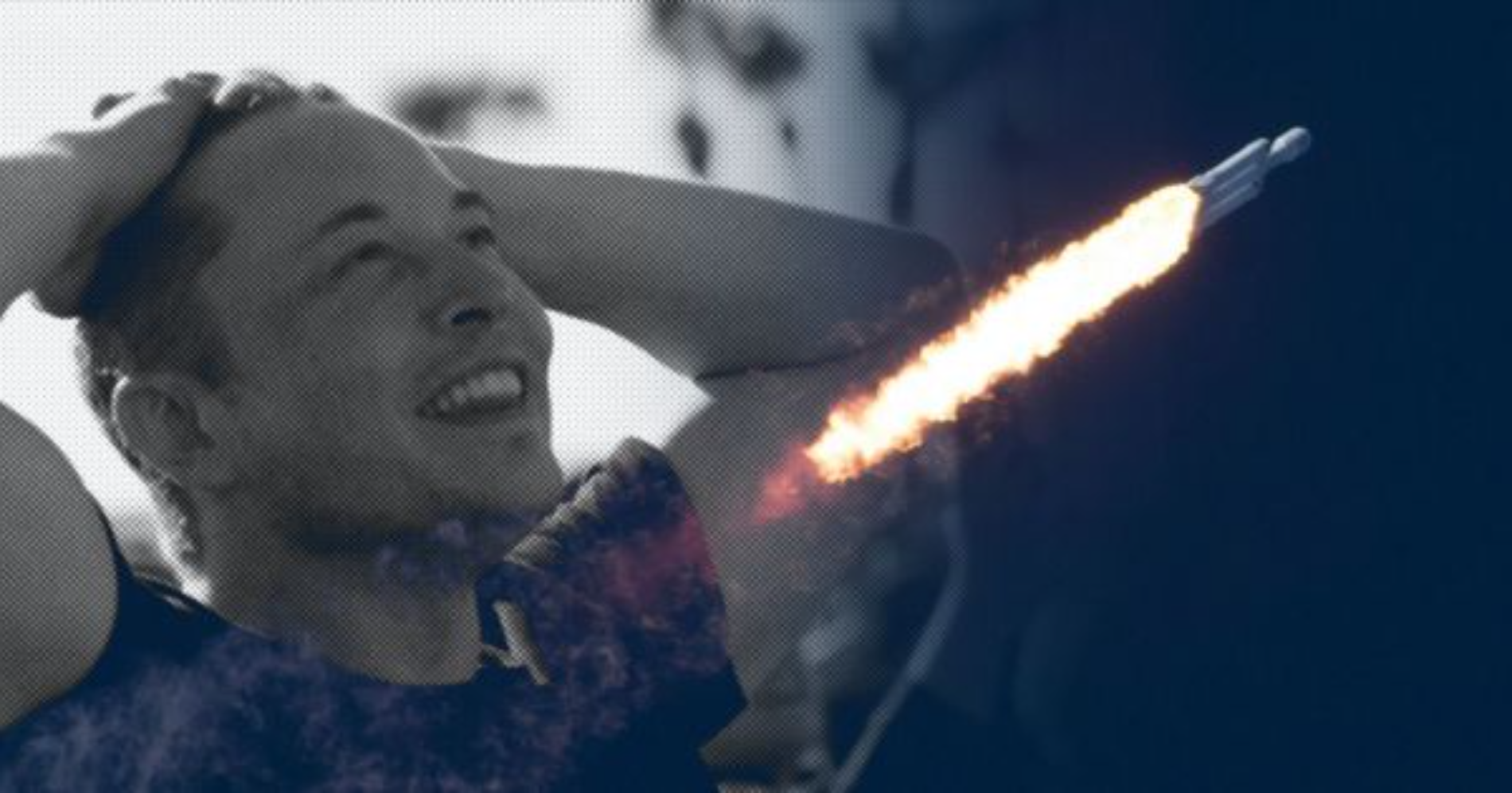
For a guy who's awfully busy saving the Earth from existential threats, digging tunnels underneath major cities, and working to colonize Mars, Elon Musk sure does read a lot.
Maybe his impressive achievements and his prodigious reading habits are related somehow...
Anyway, I posted 15 Books Recommended by Elon Musk on Instagram a while back, and I'll share just a few of the best ones here:
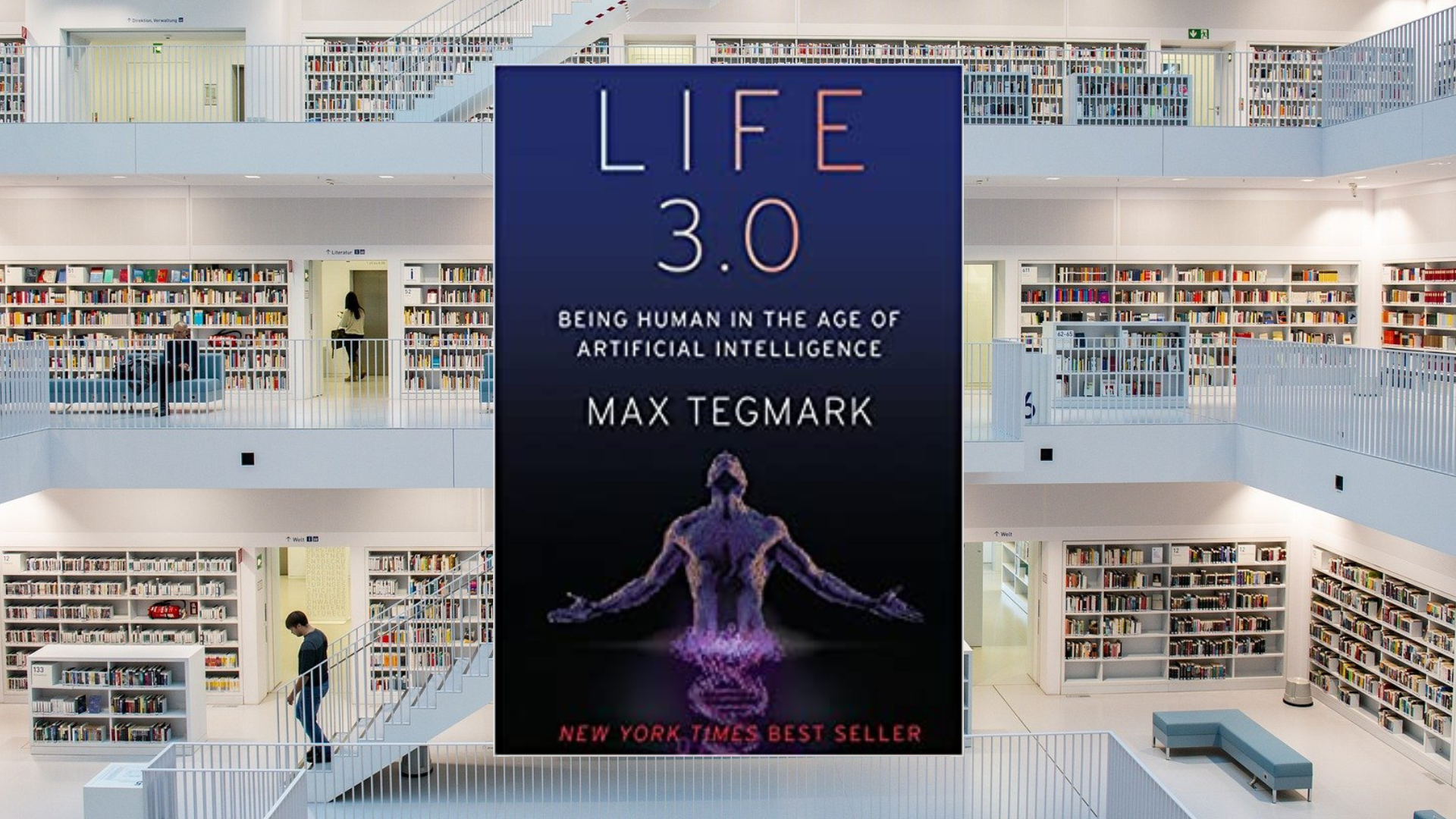
What Musk says about Life 3.0:
“This is a compelling guide to the challenges and choices in our quest for a great future of life, intelligence, and consciousness—on Earth and beyond.”
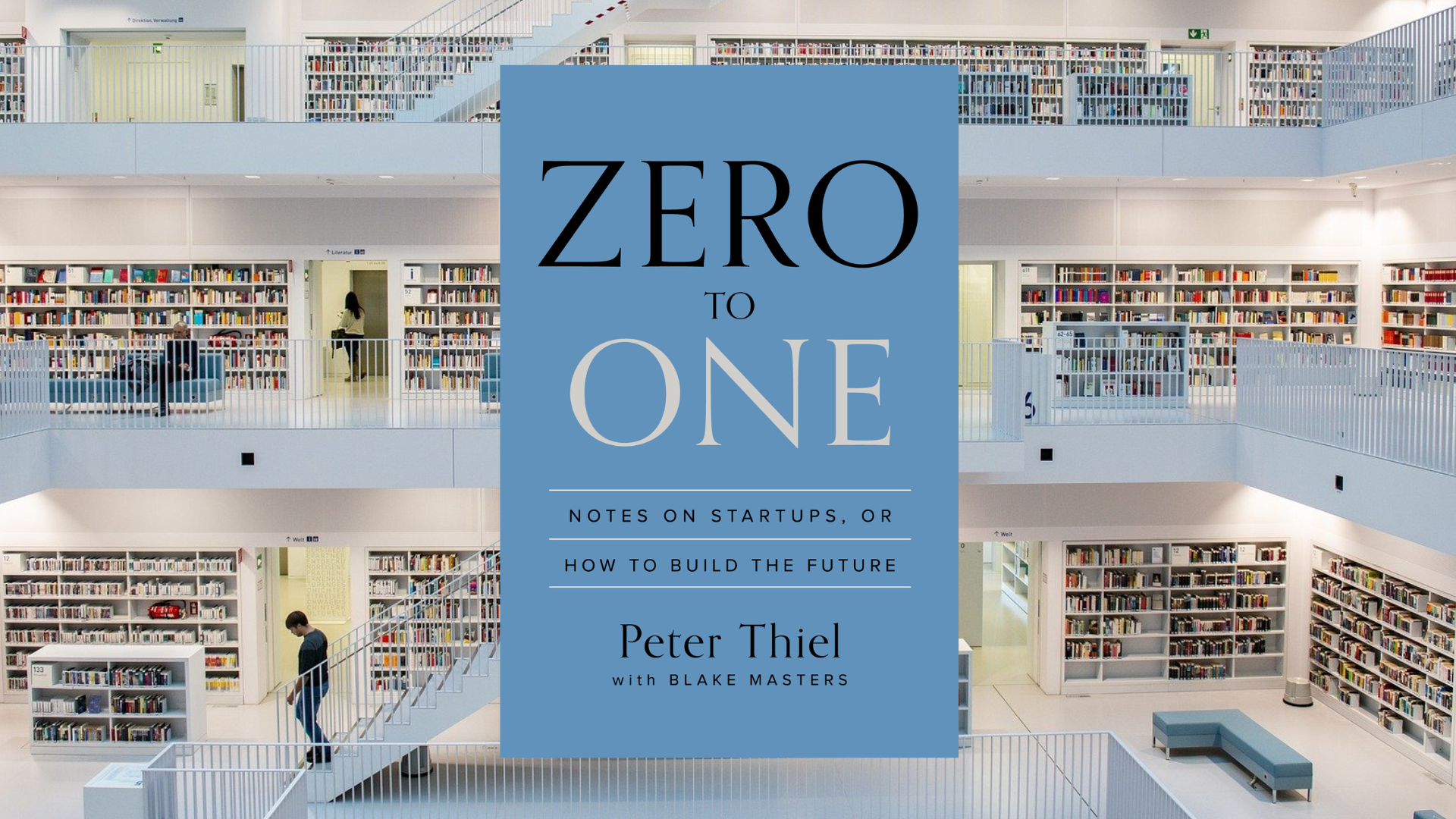
What Musk says about Zero to One:
“Peter Thiel has built multiple breakthrough companies, and Zero to One shows how.”
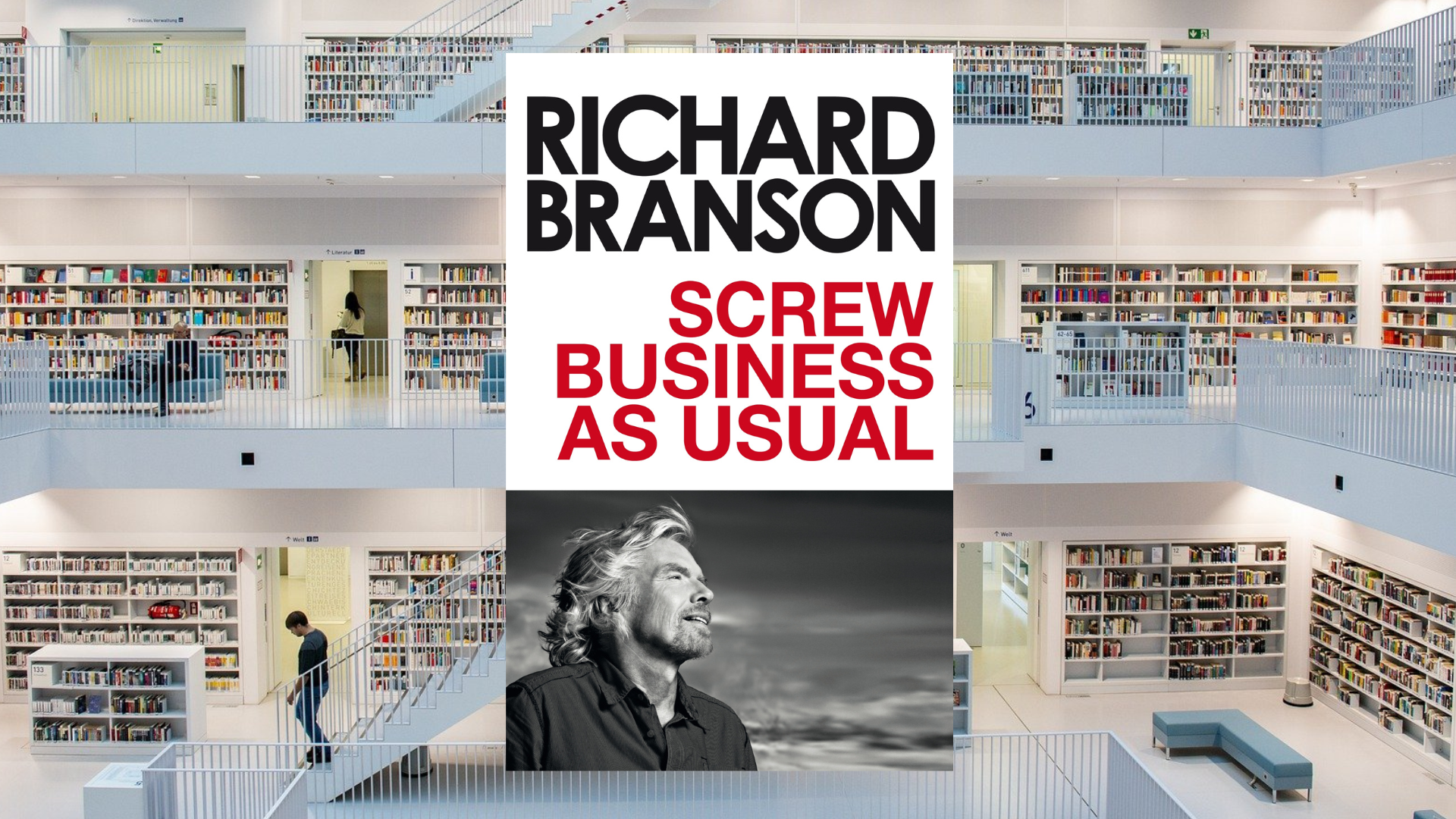
What Musk says about Screw Business as Usual:
"Liked Screw Business as Usual a lot. This approach should be taken to heart by all, as it really is the smart move."
And finally...
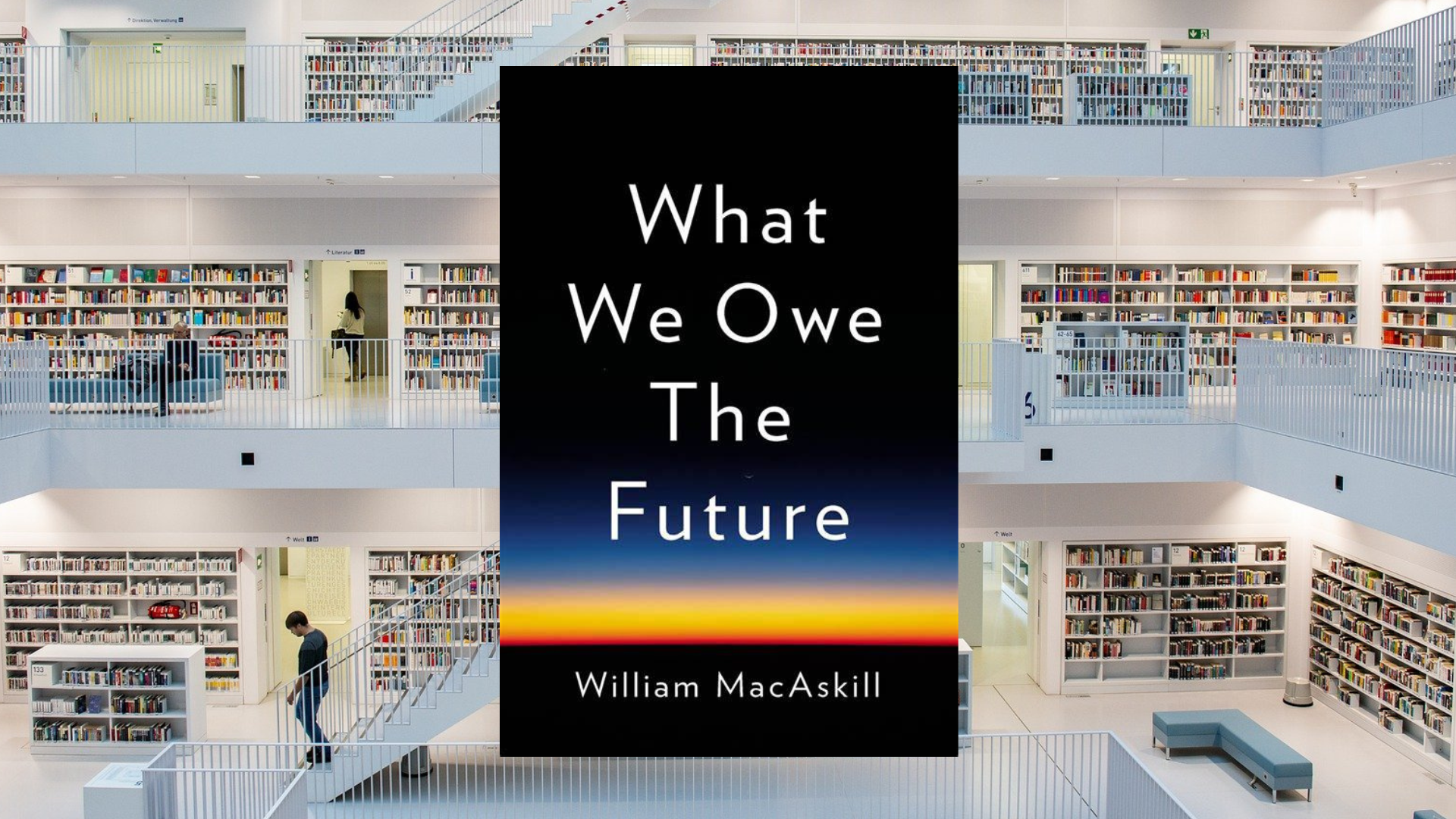
What Musk says about What We Owe the Future:
"Worth reading. This is a close match for my philosophy."
I read this one a few months ago, and it is PHENOMENAL. Will MacAskill is a philosopher at Oxford University and in this book, he discusses "long-term-ism," which is basically the idea that if we don't destroy ourselves, the human future could be very, very long (not to mention fascinating and fun), and that we should give a lot of thought to what we can do now to bring about the best future possible.
Musk and I both highly recommend this one!
Source: Instagram
Learn This Concept: The Call to Adventure

“The pathless path is an alternative to the default path. It is an embrace of uncertainty and discomfort. It's a call to adventure in a world that tells us to conform. For me, it's also a gentle reminder to laugh when things feel out of control and trust that an uncertain future is not a problem to be solved."
-Paul Millerd, The Pathless Path
Milan Kundera said that we live everything as it comes, without warning, like an actor going on cold. Life is fired at us point-blank, and we feel that this is true, so we tend to fall into comfortable, "safe" patterns of living because the uncertainty of life is, by definition, unsafe.
What Paul Millerd calls the default path is the "safest" route through life. It might get you to the end of your life without any major turbulence - less danger, less social disapproval, less financial insecurity, etc. - but it's no way to live. Not for a significant number of us, anyway.
The default path is synonymous with the "script" that society tries to convince us is the only way in which we can allow our lives to play out. It's just "what's done" by respectable people, and it involves such relatively uncontroversial things as pleasing your teachers and your parents all the way through school, jamming your days and evenings with extracurriculars and resume stuffers that look good on a university application, making it into that prestigious college and getting your $200,000 degree (that you'll be paying for until you're 40), getting an "okay" job, putting your head down for the next 40 years, and then dying with that gold watch they slap on you in honor of all your years of "faithful service."
Before I go on, I should clear something up: There's nothing necessarily "wrong" with the default path. Not everyone who travels along that road is a mindless sheep, forfeiting their existence for the false freedom of a 2-day weekend and a 401K. For some perfectly fulfilling, profitable careers, you need to go to college. I went to university for philosophy, and I don't regret it one bit. In fact, I'm using my degree right now as I'm writing this breakdown!
But there's more to life than internal memos, meetings, and team-building exercises. Such things may populate the "real world" you've been living in until now, but you don't have to live in it. You can embrace the pathless path and live consciously, and intentionally, like an actor who has read further ahead in the script than the other players and who's ready to give the greatest performance of their life.
The writer and mythologist Joseph Campbell has done a great deal to shape my thinking about the pathless path as well. The default path may have worked for Paul Millerd's parents (and mine too), but we're living in the future now, and 'we must be willing to let go of the life we planned so as to have the life that is waiting for us,' as Campbell has written. He also said the following:
“If you can see your path laid out in front of you step by step, you know it's not your path. Your own path you make with every step you take. That's why it's your path.”
Joseph Campbell is also largely responsible for moving the concept of the "hero's journey" into the public consciousness. Famously, George Lucas read Campbell's book, The Hero with a Thousand Faces more than 100 times, and you can see elements of the hero's journey all throughout Star Wars - and throughout virtually every other great story ever told.
The Hero starts off in what's called the Ordinary World, where he lives relatively unconsciously in a world he never made. In Star Wars, this would be Luke Skywalker living a normal life on his home planet. For the rest of us, it's the default path where we're told to quiet down, conform, and not make any sudden moves.
But then comes the Call to Adventure - usually in the form of a crisis - that shocks the hero into full wakefulness and makes him conscious of the existence of the Extraordinary World, beyond the confines of his original existence. I won't rehash the entire plot of Star Wars, but all the elements of the hero's journey are present there, as they are in our own lives as well.
Right now, most people are living in the Ordinary World. The default path is the water that they're swimming in, and they can't see a better way to live, because everyone around them is swimming in the same water.
Suddenly, however, a Mentor appears and shows us the way to the brighter, more vivid, more meaningful life that's available to us if we would only break free from the Ordinary World and step out into the Extraordinary World. For Luke Skywalker, that Mentor was Obi-Wan Kenobi, but in The Pathless Path, it's Paul Millerd.
Now, obviously, the Extraordinary World is not a safe place. You will run into Enemies; you will experience Trials; you may even face your own All is Lost Moment when the extreme challenges and difficulties of your new life make you long to return to the comforts of the Ordinary World.
This is normal. It's also one of the only guarantees you will ever receive along the pathless path. Literally by definition, the route is uncertain, your chances of success variable, and subject to the vicissitudes of fortune. But is the purpose of your one and only life just to coast by? Just to arrive at the moment of your death completely unscathed? Or is the purpose of your life to be fully alive?
The default path will almost always be there for you to return to if you wish (more on this later), but right now, today, the pathless path is calling. Our destination is uncertain, and even our direction can change dramatically, but we make the path by walking. And as Nietzsche advised, do not ask whither it leads; go along it.
Further Reading: The Pathless Path, by Paul Millerd
Three Books: How to Attain Mastery

There is a book for every problem you could ever face. Whatever it is that you're dealing with, someone else has also gone through something similar, come out stronger on the other side, and written about it in a book.
With that in mind, here are three books that can show you the way to true mastery of your craft, teach you how to physically change the structure of your brain to enhance learning, and more:
Learn, Improve, Master, by Nick Velasquez:
“The principles we've covered - neuroplasticity, specialization, association, chunking, and automation - are the foundation of all learning.
Our brain rewires itself through practice, creating clusters of neural connections composed of associations between thoughts, feelings, and behaviors that specialize in what we repeatedly do. When reinforced, these connections move from our conscious awareness to our subconscious, becoming almost automatic.
Then, our conscious mind is free again to process new tasks and add complexity to our growing abilities. Whether we go into French cooking, sculpting, or golf, these are the processes taking place behind the scenes as we learn. And they change the way we think as much as they change the physical structures of our brain."
This Book Breakdown contains 7 Key Ideas, 5 Action Steps, and 53 Book Notes. Read It Here.
Make It Stick, by Peter C. Brown, Henry L. Roediger III, and Mark A. McDaniel:
“It comes down to the simple but no less profound truth that effortful learning changes the brain, building new connections and capability. This single fact - that our intellectual abilities are not fixed from birth but are, to a considerable degree, ours to shape - is a resounding answer to the nagging voice that too often asks us, 'Why bother?'
We make the effort because the effort itself extends the boundaries of our abilities. What we do shapes who we become and what we're capable of doing. The more we do, the more we can do."
This Book Breakdown contains 10 Key Ideas, 3 Action Steps, and 60 Book Notes. Read It Here.
Winning, by Tim Grover:
“Control your thoughts, and you control your emotions. Control your emotions, and you control your actions. Control your actions, and you control the outcome.”
This Book Breakdown contains 12 Key Ideas, 7 Action Steps, and 22 Curated Insights. Read It Here.
Upgrade Your Reading:

One of my favorite education YouTubers, Thomas Frank, specializes in making videos that help you be more productive - whether you're in high school, college, university, or the real world.
That includes study tips to help you learn faster and ace your exams, advice on destroying procrastination, reading and note-taking strategies, and more.
And, as he says, I can't prove that he doesn't also fight bears in his spare time. But we'll explore that some other day.
What I can tell you though is that there are literally hundreds of awesome videos on his channel that will help you learn better, read faster, and remember more. I've been watching his videos for years now and I'm constantly learning new stuff from him.
This video specifically is about how to study when you have zero motivation to do so, and he presents four practices that will help in situations like these. Enjoy the video, and get ready to take some excellent notes!
Further Reading: Courses by Thomas Frank
Study Notes: The Daily Laws, by Robert Greene

I began my introduction to Robert Greene years ago with his book, The 48 Laws of Power, and I’ve read almost every book he’s ever written since. And I’ll get to the one I missed! Don’t worry!
It was actually partially because of The 48 Laws that I was inspired to take notes on every single book that I read, and that process has led me, 8 years later, to this, my 1,024th Finished Book, along with thousands and thousands of pages of notes from some of the most spectacular books ever written. In a very real way, I owe Robert Greene a debt of immense gratitude.
This one, however, is much shorter than a thousand pages, and it’s essentially a daily devotional, with one short entry each day on subjects like human nature, power, seduction, mastery, and full aliveness – which, for Greene means facing up to the reality of death head-on. It’s a brave writer – or, basically anyone – that can do that, especially since so many people still refuse to believe that death is an essential part of life.
I finished the whole book in about two weeks, while simultaneously reading other books, but you could easily take just one entry each day, apply it rigorously, and watch your life improve before your very eyes.
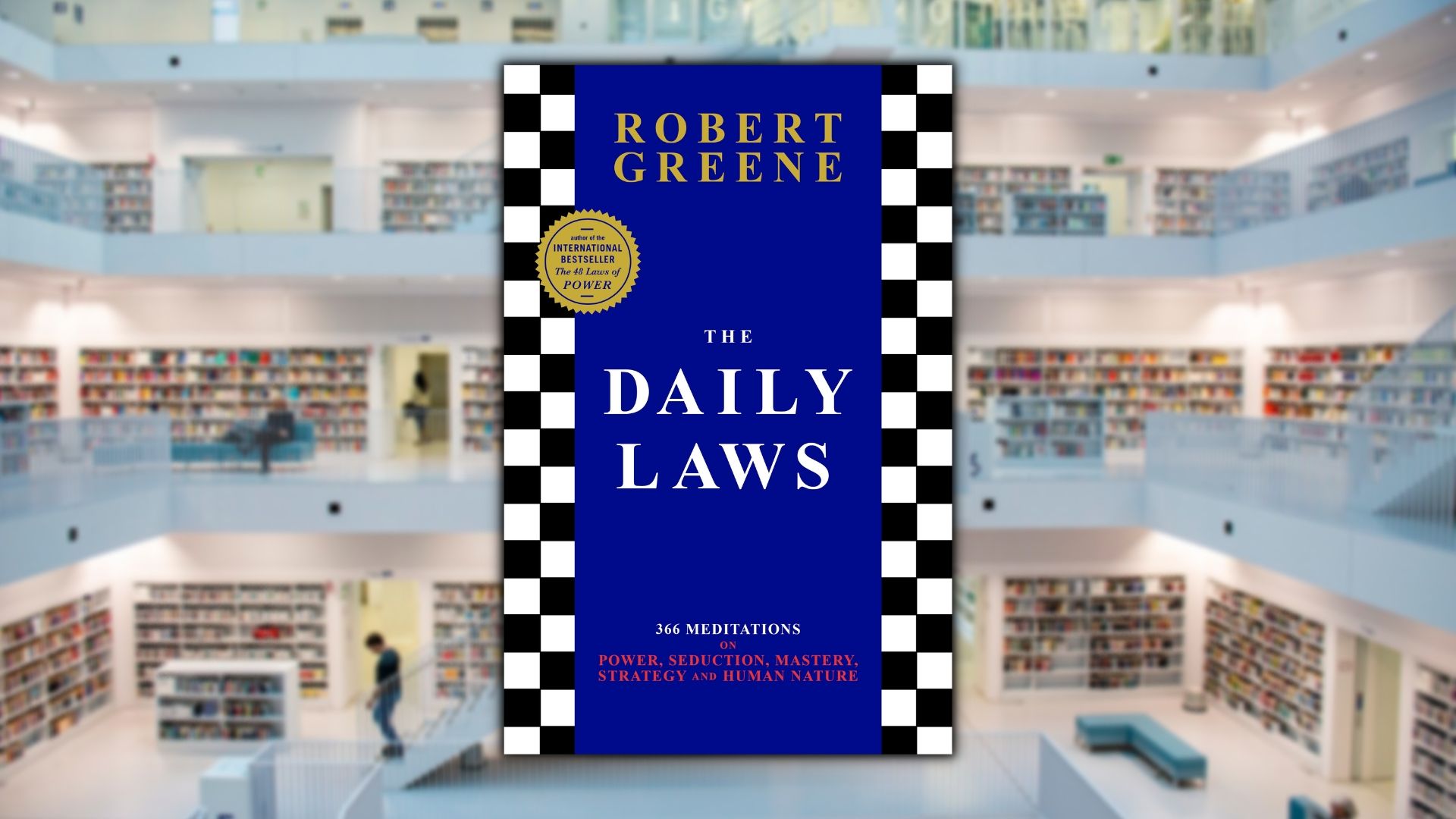
A SAMPLE OF MY BOOK NOTES FROM THE DAILY LAWS:
“Always stick to what makes you weird, odd, strange, different. That’s your source of power.”
“Every task you are given, no matter how menial, offers opportunities to observe this world at work. No detail about the people within it is too trivial. Everything you see or hear is a sign for you to decode.”
“A job with mediocre pay has the added benefit of training you to get by with less - a valuable life skill.”
“See your work as a living thing. Your task is to bring it alive and make others feel this.”
“You destroy an enemy when you make a friend of him.”
“Operating with a high sense of purpose is a force multiplier. All of your decisions and actions have greater power behind them because they are guided by a central idea and purpose. The many sides to your character are channeled into this purpose, giving you more sustained energy. Your focus and your ability to bounce back from adversity give you ineluctable momentum. You can ask more of yourself.”
Further Reading: Matt Karamazov's Notes from 1,150+ Books
What's Next?

That's it for this week! There will be no newsletter next week (I'm going in for my hernia surgery), but I'll be back the week after with more book breakdowns, inspiring thinkers, novel concepts, big ideas, reading tips, and more.
In the next issue, I will also be releasing the breakdown of The Creative Act, by Rick Rubin, one of the most astonishing books about the creative process and how to honor your own natural creativity that I've ever read.
Also, if you have any bookish friends that you think would love the Stairway to Wisdom, you can click the button below and share it with them. I mean, what are friends for?
We covered a lot today, and again, thank you very much for joining the Stairway to Wisdom. The whole team is behind you! We all want you to win!
Until next time...and happy reading!
Matt Karamazov

